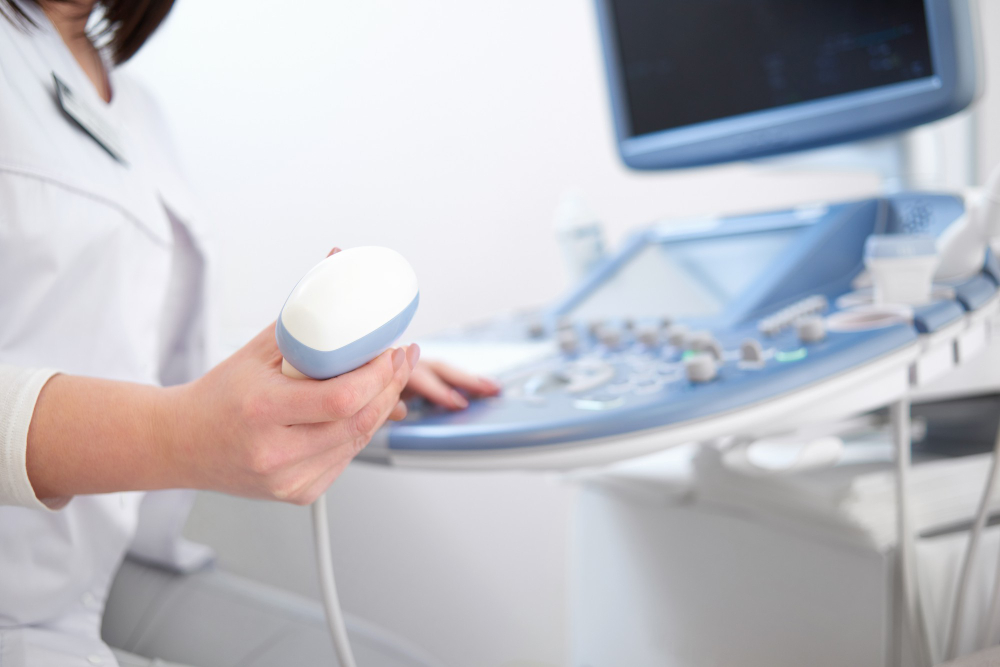
POST GRADUATE DIPLOMA IN MEDICAL ULTRASOUND
- Duration
- 15 months (full-time)
- 18–24 months (part-time)
- Delivery Mode
- Blended (online lectures, in-person practicals, clinical placement)
- Accreditation
- Designed to meet CASE standards and AIUM/ACR international guidelines
- Programme Aims
- Develop competent, reflective ultrasound practitioners
Ensure safe, ethical, and evidence-based practice
Promote leadership and research in sonographic education
The Postgraduate Diploma in Medical Ultrasound is an advanced, competency-driven program designed to equip healthcare professionals with the theoretical knowledge, technical proficiency, and clinical judgment required for high-quality diagnostic sonography across diverse medical settings. Rooted in evidence-based practice and aligned with international regulatory standards, the course fosters autonomy, ethical responsibility, and interdisciplinary collaboration.
Through immersive modules in abdominal, obstetric, gynecological, vascular, musculoskeletal, and small parts imaging, learners will gain mastery in image acquisition, interpretation, and reporting. The curriculum integrates anatomy, pathology, physics of ultrasound, and patient-centered care, with emphasis on clinical governance, safety protocols, and emerging technologies such as elastography and contrast-enhanced ultrasound.
Learners will engage in supervised clinical placements, simulation labs, and case-based learning to develop real-world diagnostic acumen. The program also addresses professional development, communication skills, and medico-legal considerations, preparing graduates to lead in sonographer-led clinics, radiology departments, and wellness centers.
This diploma serves as a gateway to advanced roles in diagnostic imaging, research, and education, and is ideal for radiographers, physicians, and allied health professionals seeking specialization in ultrasound within compliant and innovative healthcare ecosystems.
Core Modules (Mandatory)
| Module Title | Credits | Description |
|---|---|---|
| Scientific Principles of Diagnostic Ultrasound | 15 | Covers physics, instrumentation, safety, and image optimization |
| Professional Ultrasound Practice | 15 | Legal, ethical, and professional frameworks; communication and patient care |
| Research Methods & Evidence-Based Practice | 15 | Prepares students for critical appraisal and research in ultrasound |
| Clinical Governance & Quality Assurance | 15 | Focuses on audit, peer review, and continuous improvement |
Clinical Modules (Choose 2–3) Mandatory
| Module Title | Credits | Description |
|---|---|---|
| General Abdominal Ultrasound | 30 | Liver, gallbladder, kidneys, pancreas, spleen |
| Obstetric Ultrasound | 30 | First to third trimester, fetal biometry, anomalies |
| Gynaecological Ultrasound | 30 | Uterus, ovaries, pelvic pathology |
| Musculoskeletal Ultrasound | 30 | Upper/lower limb joints, tendons, ligaments |
| Vascular Ultrasound | 30 | DVT, carotid, peripheral arterial/venous systems |
| Point-of-Care Ultrasound (PoCUS) | 30 | Emergency, critical care, trauma, guided procedures |
| Non-medical Radiology | 15 | Gender revealing and bonding scans |
Programme Requirements
- Clinical Placement Requirements
-
- Minimum 2 days/week supervised clinical training
- Logbook of minimum 250–300 scans per specialty
- Formative and summative clinical assessments
- Assessment Methods
-
- OSCEs (Objective Structured Clinical Examinations)
- Case-based discussions
- Reflective portfolio
- Written assignments and presentations
- Clinical competency evaluations
- Entry Requirements
-
- Healthcare degree (e.g., radiography, nursing, medicine)
- Confirmed clinical placement with mentor support
- English proficiency (IELTS 6.5+ if applicable)
